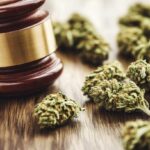Introduction to CBD and Pediatric Epilepsy
In a world where traditional treatments often fall short, cannabidiol (CBD) has emerged as a glimmer of hope for many families battling pediatric epilepsy. This cannabis-derived compound is not just a buzzword; it has opened doors to new possibilities for managing seizures and enhancing the quality of life for children suffering from various forms of epilepsy. This article will guide you through the intricate relationship between CBD and pediatric epilepsy, highlighting its benefits, mechanisms, and the latest research.
Understanding Pediatric Epilepsy
Pediatric epilepsy refers to a spectrum of seizure disorders that can significantly impact a child’s life. Conditions like Dravet Syndrome, Lennox-Gastaut Syndrome, and other developmental and epileptic encephalopathies (DEEs) are often particularly resistant to conventional antiseizure medications. These children frequently experience a myriad of challenges, and finding effective treatments is paramount.
For eager parents, battling these epilepsy types can feel isolating and overwhelming. But the landscape of treatment is evolving, and insight into the potential of CBD is breaking new ground.
How CBD Works in Treating Seizures
Mechanism of Action
At the heart of CBD’s therapeutic promise lies its interaction with the brain. Research indicates that CBD works by modulating the endocannabinoid system, specifically by blocking signals associated with the molecule lysophosphatidylinositol (LPI). LPI is known to amplify nerve signals that can lead to seizures, so CBD’s ability to disrupt this process is key to its effectiveness.
Clinical Evidence
Research has evidenced the remarkable efficacy of CBD in managing pediatric epilepsy. One of the most notable developments is the FDA-approved medication Epidiolex, a purified form of CBD. Clinical trials have demonstrated that Epidiolex can lead to a 43% to 86% reduction in seizure frequency among children with resistant types of epilepsy. For some patients, this translates to complete seizure freedom.
Here are some notable study outcomes:
- Epidiolex: FDA approval is based on extensive trials that showcase long-term safety and efficacy in pediatric epilepsy, particularly for Dravet and Lennox-Gastaut Syndromes.
- Patient Testimonials: Many parents have shared heartwarming stories of their children experiencing fewer seizures and improvements in overall well-being after starting CBD treatment.
Types of CBD Products for Pediatric Epilepsy
Pharmaceutical-Grade CBD Oil
The most researched product for pediatric epilepsy is Epidiolex, characterized by its high purity and low THC levels (less than 0.1%). Its use in clinical settings has provided invaluable data on safety and efficacy, positioning it as a gold standard among CBD treatments.
Whole Plant-Based Medical Marijuana
Some evidence suggests that using a combination of THC and CBD may yield superior results compared to using CBD alone. Whole plant-based medical marijuana products can provide a broader spectrum of cannabinoids, which might offer enhanced seizure control and improvements in sleep, behavior, and cognitive function.
Transdermal CBD Gel
An exciting innovation in the realm of CBD applications is transdermal CBD gel. Research from Australia and New Zealand has indicated that this delivery method is well-tolerated in children, showing promising results in reducing seizure frequency over extended treatment periods.
Safety and Tolerability
Understanding the safety profile of CBD is crucial for families considering it as a treatment option. While CBD is generally well-received, potential side effects may include:
- Common Side Effects: Diarrhea, sedation, appetite changes, and elevated liver enzymes can occur, making monitoring essential.
- Drug Interactions: Care is required because CBD has the potential to increase serum levels of other antiseizure medications, particularly clobazam, necessitating dosage adjustments.
- Long-Term Safety: Although long-term use can lead to tolerance in some patients, the overall evidence suggests that it remains a viable therapeutic option.
Future Directions and Preventive Potential
Combination Therapies
Emerging research indicates promising avenues regarding combination therapies. Studies led by Dr. D. Samba Reddy at Texas A&M University have demonstrated that combining CBD with certain antiseizure medications can yield synergistic effects, enhancing seizure control. This opens up exciting possibilities for new treatment strategies designed for children whose epilepsy proves difficult to manage.
Preventive Potential
Another noteworthy area of research is the potential for CBD to prevent epilepsy onset in at-risk individuals. Experimental models indicate that CBD may inhibit the progression of epilepsy from an acute to a chronic state, indicating a proactive role in managing seizure disorders.
Conclusion and Actionable Tips
For families navigating the challenges of pediatric epilepsy, CBD presents a significant opportunity. Here are some steps to consider if you’re thinking about pursuing CBD treatment for your child:
- Consult a Healthcare Provider: Always engage with a knowledgeable healthcare professional before making any changes to your child’s treatment plan, including the introduction of CBD.
- Choose FDA-Approved Products: Ensure that any CBD product is FDA-approved, like Epidiolex, to guarantee both safety and efficacy.
- Monitor for Side Effects: Regularly observe your child for any side effects, adjusting dosages as advised by your healthcare provider.
- Stay Informed: Research into CBD and epilepsy is advancing rapidly. Keep abreast of new studies and clinical trials that can enhance your understanding and approach.
As the bond between families and health professionals forms, many have witnessed transformative results in seizure management and an overall boost in life quality. With ongoing research, the future for CBD in pediatric epilepsy continues to look optimistic.
Additional Resources
- NYU Langone Health: Research on CBD and its advantages in combatting seizures.
- Frontiers in Neurology: Insights on effective dosages and tolerability of CBD for children.
- Texas A&M University: Ongoing studies into innovative combination therapies for epilepsy.
As we weave the story of CBD and its potential in the realm of pediatric epilepsy, we celebrate the families seeking answers and the continuous journey toward better health outcomes. By rooting our decisions in research and community support, we can foster hope and resilience along this path.




















